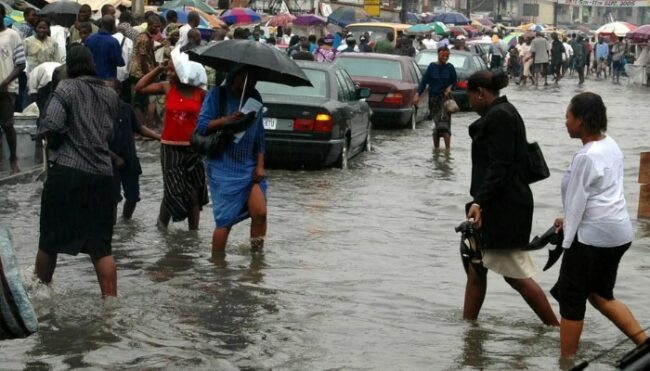
Nigeria’s education system is faced with a large and growing out-of-school population, with 10.2 million at the primary school level and 8.1 million children at the junior secondary level, and its huge consequences, particularly in Southwestern Nigeria, need to be addressed.
UNICEF’s Education Specialist, Mr Babagana Aminu, speaking at a 2-day regional stakeholders meeting on out-of-school children and retention, transition, and completion models for Southwestern states in Nigeria, said that Nigeria needs to build multiple systems or multiple learning pathways to address this growing out-of-school population, which varies from one region to another in Nigeria for different reasons.

This was organised by the Oyo State Ministry of Education in collaboration with UNICEF.
Mr Aminu, who quoted the multiple cluster indicator survey, which was conducted by NBS, said that in all six southwestern states of Nigeria, about 8 percent of children aged six to 16 years are out of school.
“But that is not the most worrisome data, if I may say, concerning the Southwestern state. Most of the worrisome data has to do with retention, that is, retaining those children who must have enrolled in school. But also, they are completing the level of education that they have enrolled in. And as well, when they transit to senior secondary school, how well are they transiting?
“Data shows about 92 percent and 85 percent of those children that are completing primary and upper secondary education. That is really, really worrisome. That means a lot of children who enter primary school may not have the opportunity to complete junior secondary school, and that means the future for them is still blurred.
“So where are these children? That means these children, if they are not in school, are out of school. If they are out of school, are they doing any vocational or skills programme?
“That means there is a need for government and also all the stakeholders in education to take action to address these issues, especially around 21st-century skills, foundational literacy, and transferable skills, which are essential for them to thrive in today’s world.”
Mr Aminu, however, stated that the way to identify a child out of school is not by physical appearance, because not being in school is not about physical appearance.
“It’s about how that particular child or that particular person is able to interact, how that person is able to do an efficient business,” he added.
Mrs Azuka Menkiti, also an education specialist at UNICEF Nigeria, stated that UNICEF recognised the peculiarities of different zones and was supporting the zone to address issues of retention in school and transition to and completion of basic school, which is also contributing to the number of children who are not in school.
She advocated for more funding to be allocated to secondary schools, emphasising that it would equip them with the necessary skills to succeed in life.
She said: “This comes from about 10 years of intervention we have done on girls’ education that has shown successful, tested, and skill-able interventions that have been able to help us bring girls to school and keep them in school.
“What the two-day meeting is doing is supporting states to begin to look at issues that are drivers of dropouts for adolescents in their states.
“When we talk about the bigger picture of out-of-school children, we are looking at them from different perspectives: those who have never enrolled in school, those who are likely not to enrol in school, and those who have dropped out of school. So we are interested in this meeting for those who are at risk of dropping out and being at risk of not completing secondary education.”
In his welcome address during the stakeholders meeting held in Ibadan, Oyo State capital, which had in attendance Commissioners for Education, Chairman of State Universal Basic Education Board (SUBEB), religious leaders, and top civil servants, the Commissioner for Education in Oyo State, Prof. Salihu Abdulwaheed, described as embarrassing the issue of being out-of-school, stressing need to be dealt with holistically.
Abdulwaheed disclosed that the issue of out-of-school children in the state was mainly non-indigenes and assured that the data would improve ahead of the next academic session.
With the Commissioner for Education in Ekiti, Dr. Olabimpe Aderiye, stressing that every state and region has peculiarities as regards the out-of-school children menace, the Commissioner for Education, Science, and Technology in Ogun State, Prof. Abayomi Arigbabu, said his state government was already addressing issues and all factors that were indirectly affecting children.
On his part, the Ondo State Commissioner for Education, Science, and Technology, Mr Laolu Akindolire, also said all factors causing children to drop out of school had already been addressed in the state.







